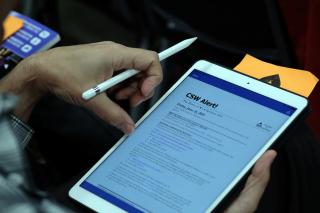Social Witness Opportunities
One way to engage in Unitarian Universalist (UU) social justice work and further promote liberal religious values is to participate in the Unitarian Universalist Association (UUA) Social Witness process. Together, as congregations and at General Assembly, we articulate and adopt positions on social justice issues, using procedures outlined in the Bylaws and Rules and facilitated by the Commission on Social Witness.
Your congregation or district may initiate a Congregational Study/Action Issue, starting the process that leads to a Statement of Conscience. Your General Assembly (GA) delegates may initiate Actions of Immediate Witness. Additionally, all congregations are encouraged to participate in studying and acting upon that year’s chosen Congregational Study/Action Issue and Actions of Immediate Witness.
Please see the Proposers Guide for Social Witness.
Congregational Study/Action Issues and Statements of Conscience
Every two years, the Commission on Social Witness (CSW) receives proposals from congregations and districts for Congregational Study/Action Issues (CSAIs), each hoping theirs will be selected and will eventually result in a UUA Statement of Conscience. The Study and Action Process was created to uphold our principles and to engage Unitarian Universalists in the articulation of conscience on pressing social justice issues. The process is initiated by congregations, districts, and two UUA sponsored organizations and culminates with the delegates at General Assembly. The CSW facilitates transitions from one phase to the next.
After three years of study and action on a CSAI, the General Assembly delegates may adopt a Statement of Conscience (SOC) on the subject. It is the product of countless hours of thought, collaboration, and dedication. During the year following adoption of a SOC, congregations and UUA staff will work to implement the SOC and report their results to the following General Assembly. Adopted Statements of Conscience serve to focus the efforts of congregations and other UU groups on the topic of the SOC, shape the meaning of contemporary Unitarian Universalism, and empower the Office of Advocacy and Witness to lobby our positions in pending legislation.
For more information about the social witness process at GA, please refer to the Commission on Social Witness or reference UUA Bylaws Section 4.12. UUA Statements of Conscience.
Actions of Immediate Witness
One of the most exciting aspects of General Assembly is the unfolding Action of Immediate Witness (AIW) process. People come with a wide range of issues, engage one another in conversation, sign petitions, debate the issues, vote, and bring to life the Principles of Unitarian Universalism, all within the span of one General Assembly.
Unlike a Statement of Conscience, an AIW does not carry the full authority of the Unitarian Universalist Association; rather, it expresses the conscience of the delegates at the GA at which it is passed. This difference follows from the difference in procedure: Congregational Study/Action Issues are initiated by congregations or districts or specified UUA sponsored organizations and move through a three-year period of study and action with opportunities for congregational and district comment. There are no such opportunities for AIWs, which are initiated by individuals and move through their entire creation and adoption process during one GA. Nonetheless, AIWs are also the product of considerable thought, collaboration, and commitment.
The AIW process allows Unitarian Universalists to respond quickly to social issues deemed urgent. Adopted AIWs are used by congregations in local efforts and empower the Washington Office for Advocacy to take action and recommend action through other departments of the UUA and other UU groups.
Search Social Justice Statements adopted at General Assembly from 1961 to the Present
For more information contact socialwitness@uua.org

